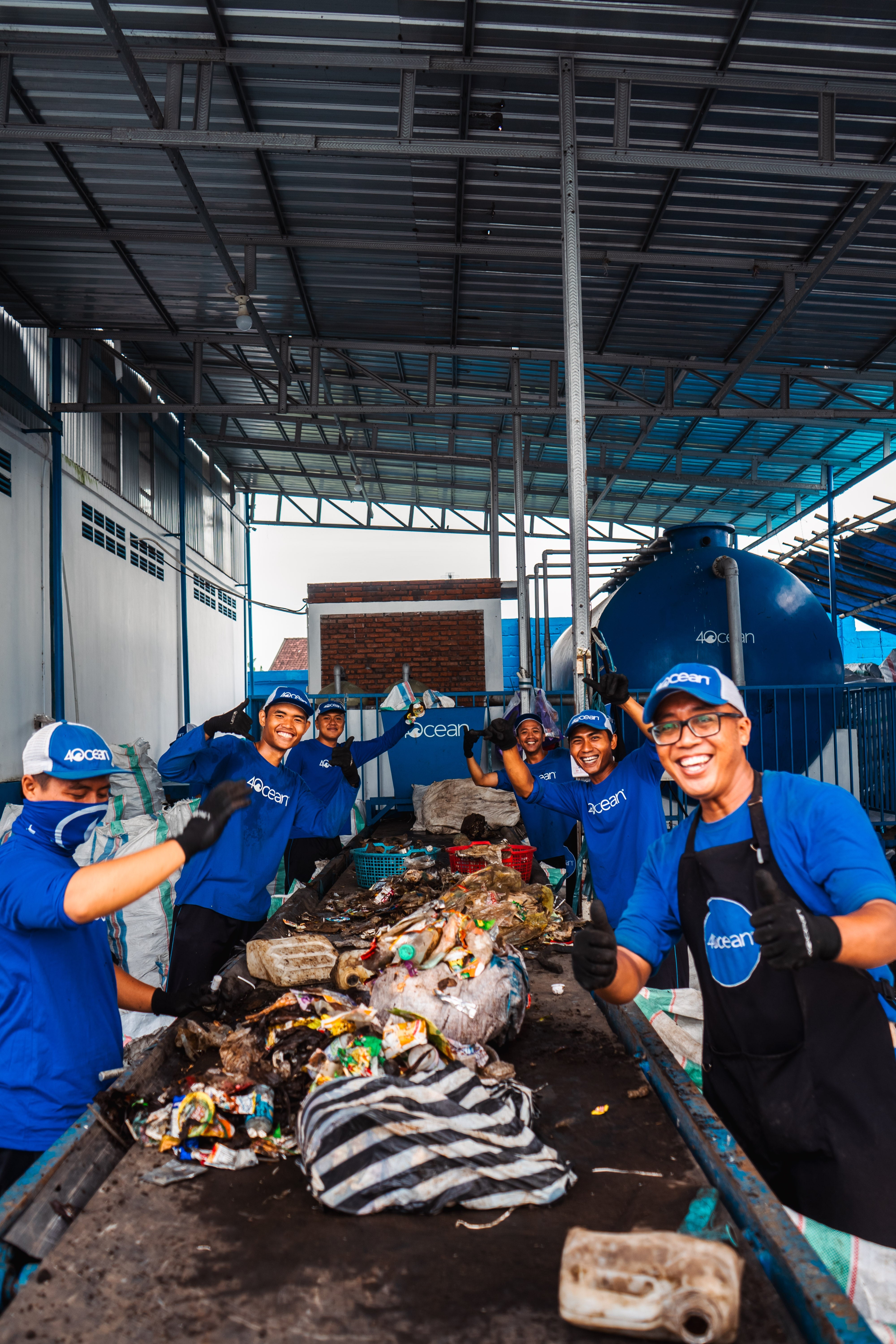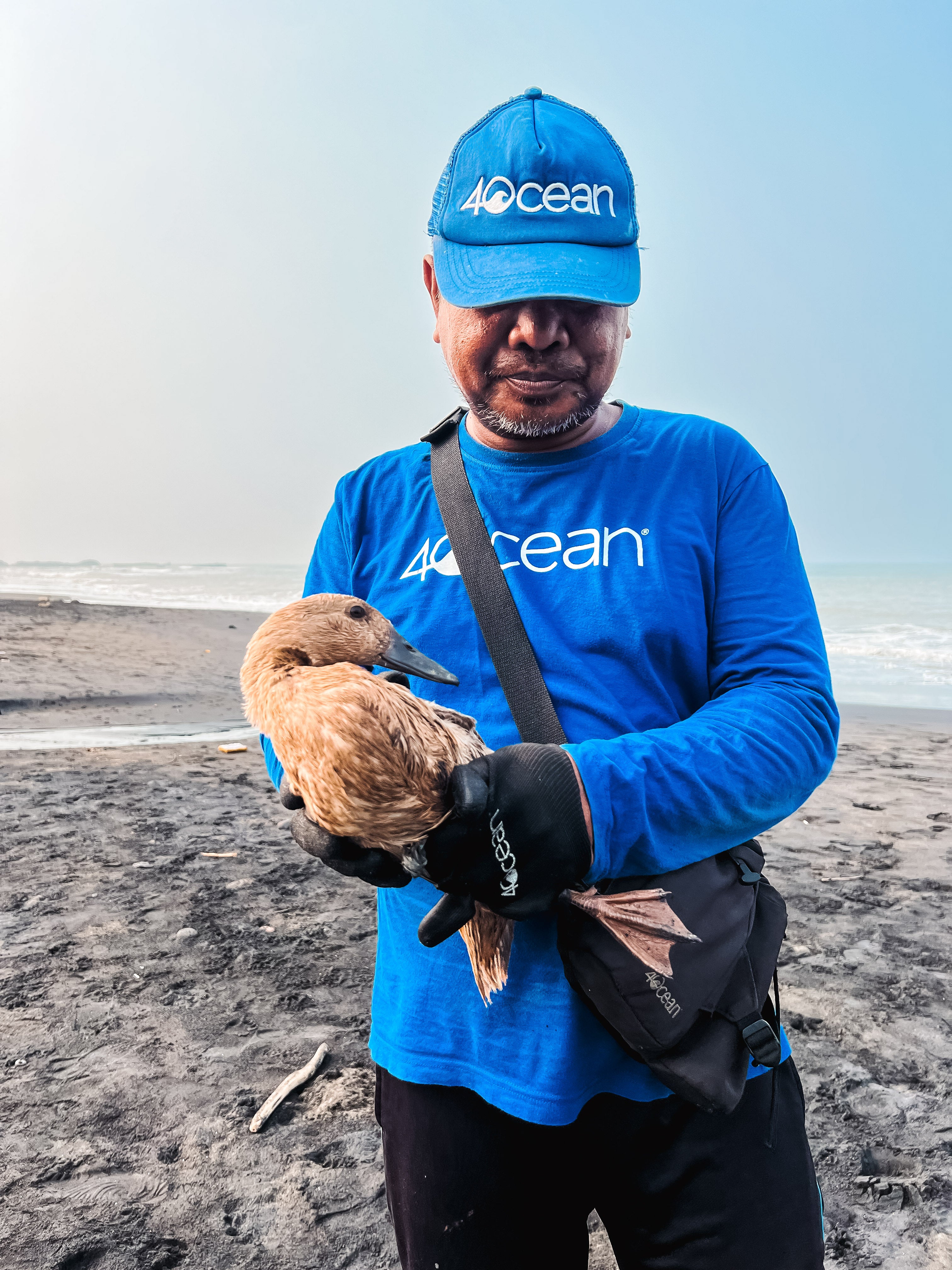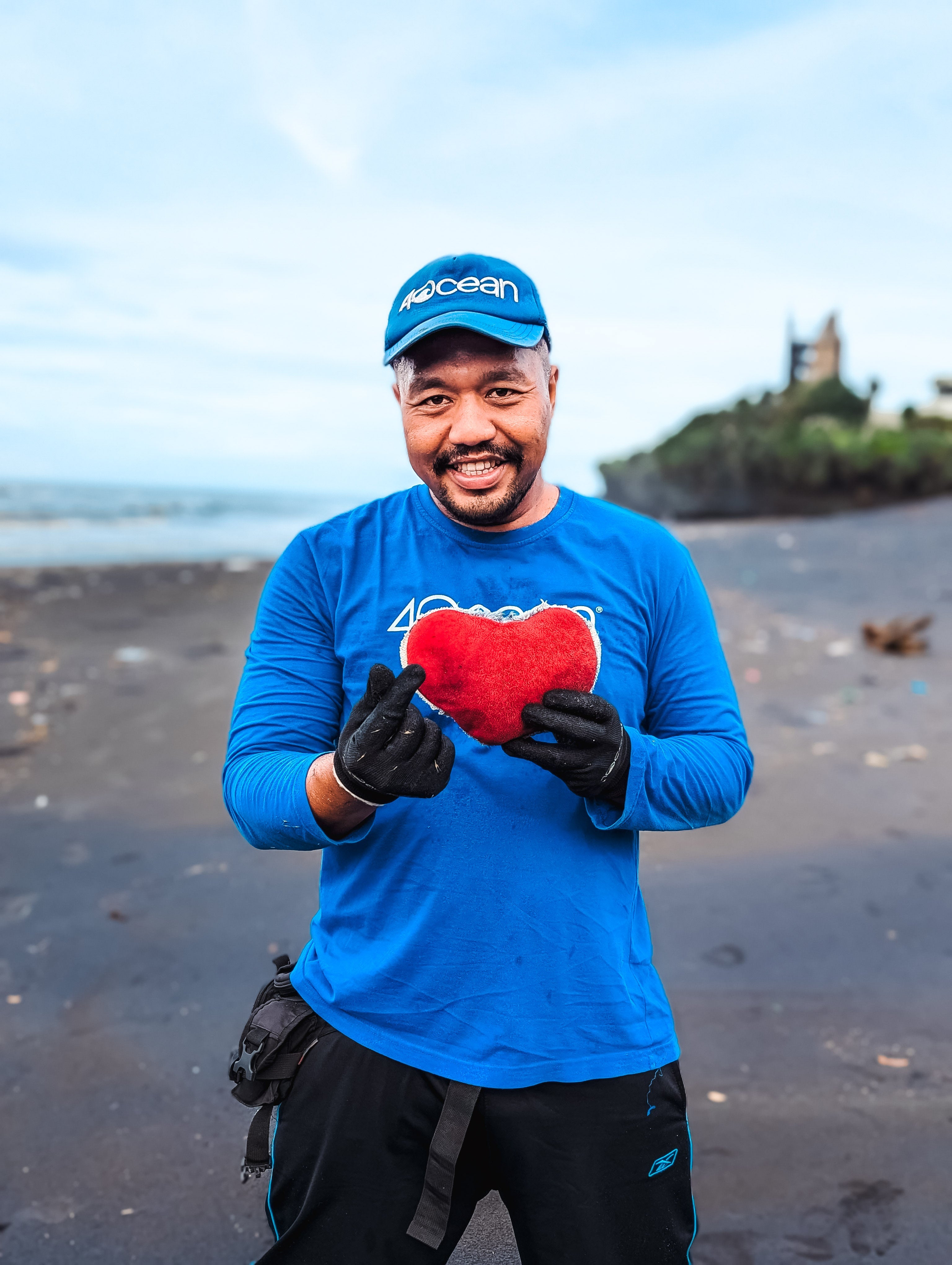5 MIN READ
02-05-2025
Mangrove Cleanup Between the Bago River and Tratas Beach: Restoring a Vital Coastal Ecosystem
Dika, 4ocean Bali Content Correspondent
Nestled between the Bago River and Tratas Beach lies a critical mangrove ecosystem, one that serves as a natural barrier against coastal erosion and provides a habitat for diverse wildlife. However, the impact of pollution has taken its toll on this fragile environment. The 4ocean Java Beach Team recently undertook a challenging cleanup effort in this area, where plastic and non-plastic waste had accumulated, entangled in mangrove roots and scattered along the shoreline. With determination and teamwork, they tackled the pollution head-on, removing nearly a ton of waste and reinforcing their commitment to coastal conservation.
The team’s efforts were driven by the need to address an ongoing crisis: the relentless influx of plastic waste. With the Bago River serving as a conduit for household trash, the mangrove forest had become a trap for debris carried by the current. Over time, plastic waste became enmeshed in the mangrove roots, posing a threat to the ecosystem’s health. In total, the team collected 1,472.12 pounds of plastic waste from the environment
Among the unsettling discoveries were dead fish washed ashore, a stark reminder of how pollution is disrupting the balance of marine life. The team also encountered goats foraging along the shoreline, highlighting the broader impact of pollution on both land and sea creatures. The presence of tree trunks, branches, and leaves further illustrated the accumulation of organic and inorganic debris, obstructing the natural flow of the ecosystem.
Mangrove cleanups are never simple. The dense root systems that protect coastlines also ensnare waste, making it difficult to remove without causing harm to the plants themselves. Some non-plastic waste, such as fabric, had been lodged in the roots for so long that it had fused with the ecosystem. The team had to carefully cut and extract these materials without damaging the delicate structures that serve as a vital defense against coastal erosion.
Another logistical hurdle was the site’s distance from the main road. At approximately 300 meters from the nearest accessible route, transporting the collected waste proved challenging. To work around this, the team used motorcycles to shuttle the waste to a designated pickup point before loading it onto the 4ocean truck for further processing. Though labor-intensive, this strategy ensured that no collected waste was left behind.

For Krisna Iza Rabindra, Captain of the 4ocean Java Beach Team, this work is more than just a job—it’s a mission. “I feel incredibly happy and proud to do this work, especially because I can contribute to making a positive impact on the community in terms of environmental cleanliness,” Krisna shared. “Public awareness of the impact of improperly disposed waste is crucial. If this habit continues, the negative effects will only grow and repeat, harming us all. Therefore, I hope more people will care and take action to maintain cleanliness for a better environment.”
Krisna, along with his team—including Ari Surya Prayoga, Dwi Agus Saputra, Dian Angga Saputra, Indra Dwi Pramono, Darys Eka Setyawan, and Oval Bayu Murti—worked tirelessly to ensure that this stretch of mangrove forest and coastline was cleared of as much waste as possible. Their collective effort was not just about cleaning up but about sending a message: change starts with action, and everyone has a role to play in protecting the environment.
The Bago River and Tratas Beach cleanup is a testament to the ongoing struggle against plastic pollution. The impact of waste extends far beyond the water’s edge, affecting marine life, land animals, and entire coastal communities. Without intervention, plastic waste will continue to disrupt ecosystems, endanger wildlife, and contribute to environmental degradation.
Through persistent efforts, education, and community involvement, the 4ocean Java team is committed to reversing the damage. But lasting change requires collective action. Whether through reducing plastic use, properly disposing of waste, or joining local cleanups, every individual has the power to make a difference.
Together, we can turn the tide against ocean pollution.











